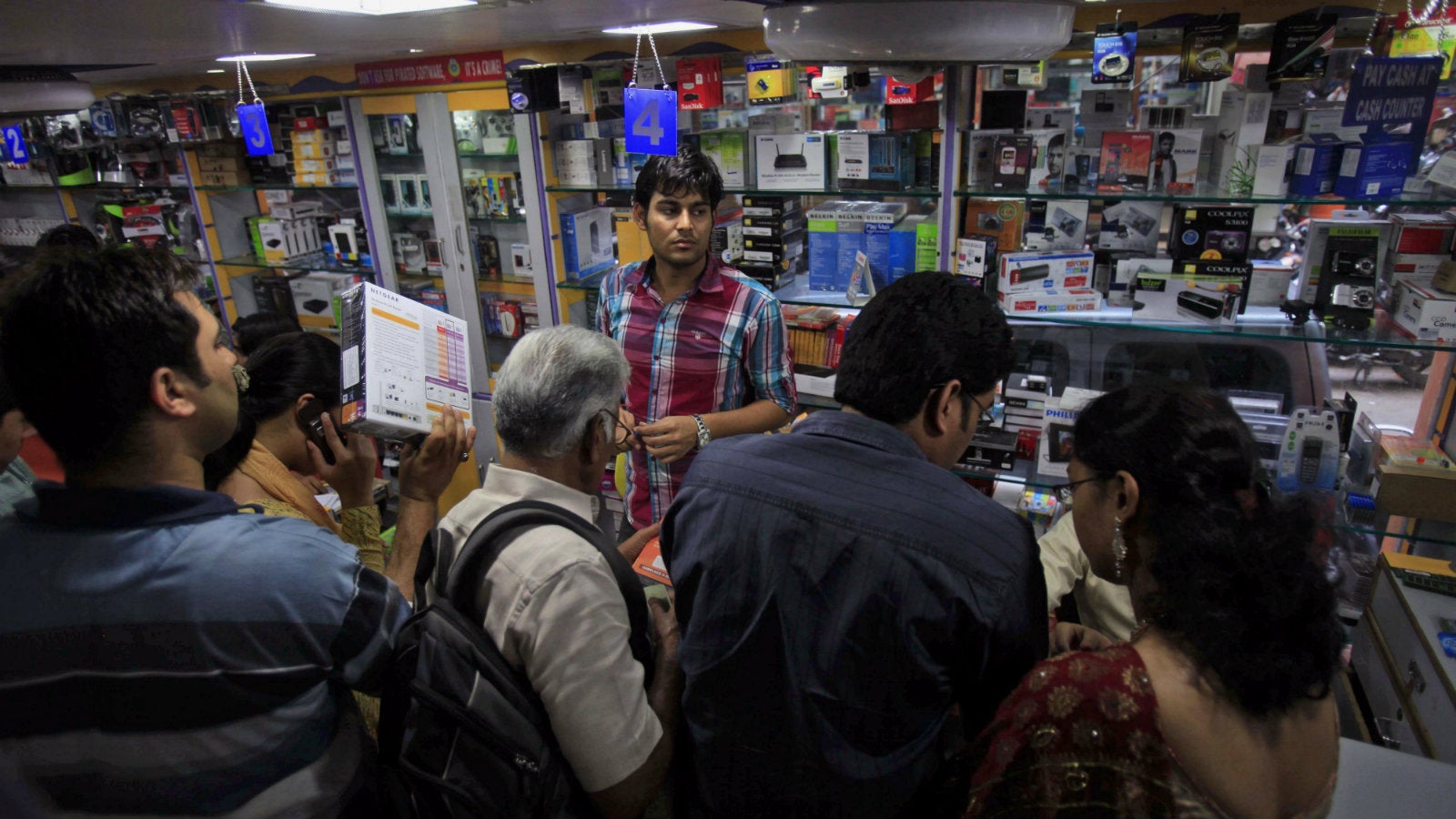For Indian e-commerce, the choice is between discount and bleed or profit and die
Last week, marketing professional Abhishek Bajaj decided to buy a refrigerator. An avid online shopper, he, along with his 33-year-old wife, who works with a Bengaluru startup, began exploring on Flipkart and Amazon. Like always, they decided to check the product out at a neighbourhood Reliance Retail store before ordering it online.


Last week, marketing professional Abhishek Bajaj decided to buy a refrigerator. An avid online shopper, he, along with his 33-year-old wife, who works with a Bengaluru startup, began exploring on Flipkart and Amazon. Like always, they decided to check the product out at a neighbourhood Reliance Retail store before ordering it online.
At the store, they found that the brand they were keen on cost the same online and offline. The decision thereafter was straightforward.
“The store is 100 meters from our house. I will get the delivery within a couple of hours of making the purchase,” Bajaj said. “If I had ordered online, it would have taken at least a couple of days for the product to get delivered. If I am getting it offline for the same price, why would I wait for two days?”
In short, online’s loss was offline’s gain.
What’s worse, Bajaj and his wife are not the only ones dumping online shopping and returning to good old retail stores. And this has been happening across several product categories.
For instance, smartphones—one of the most popular products on Indian e-commerce portals—have seen online sales fall since the beginning of this year as discounts disappeared.
Price-sensitive Indians love discounts.
Over the last decade or so, sales, coupons, and cash-backs have played a crucial role in attracting online shoppers. According to a 2015 report by Goldman Sachs, 30% of an Indian e-commerce company’s expenses are towards discounts.
Besides daily deals, leading Indian online retailers have been hosting annual mega sale events such as Flipkart’s Big Billion Day (BBD), Amazon’s Great India Sale, and Google’s Online Shopping Festival, where discounts often ran as high as 80%. During BBD in 2014, Flipkart sold products worth $100 million (over Rs600 crore) within 10 hours.
“E-commerce websites will have to be cheaper than offline stores always, particularly for large items,” said Harish HV, partner at consulting firm Grant Thornton India. Customers may pay more online for small, everyday items, but most don’t mind taking out time to visit stores and compare prices when it comes to big-ticket purchases, Harish said.
At least 10 regular e-commerce customers told Quartz that they would return to local stores if they didn’t find the price advantage online.
Yet, continuing with discounts may not be easy for online players.
Discounting difficulty
Since the beginning of this year, the global investor sentiment towards Indian e-commerce has turned lukewarm. India’s largest online retailer, Flipkart, has been devalued by several investors since January.
In this environment, there is pressure on online retailers to reduce costs and improve margins. This, in turn, has led to a significant drop in discount sales.
Even the bonanza events during the recent holidays weren’t as attractive as in the past. While all leading players announced sales events ahead of the Independence Day holidays between Aug 13-15, they failed to impress buyers.
Besides the financial constraints, the Indian government’s revised foreign direct investment policy may make it harder for these companies.
This new policy for e-commerce, announced in March, states that online marketplaces will only act as platforms where sellers can list goods without any interference in pricing by the hosting companies .
Flipkart, Amazon, and Snapdeal did not respond to emails from Quartz.
The approaching festival season in India could be the big test.
During October-December, retailers in India usually register about 40% of their annual sales of clothes, electronics, automobiles, and household items. For e-commerce players, it is going to be a tough trade-off: discounts or profits.